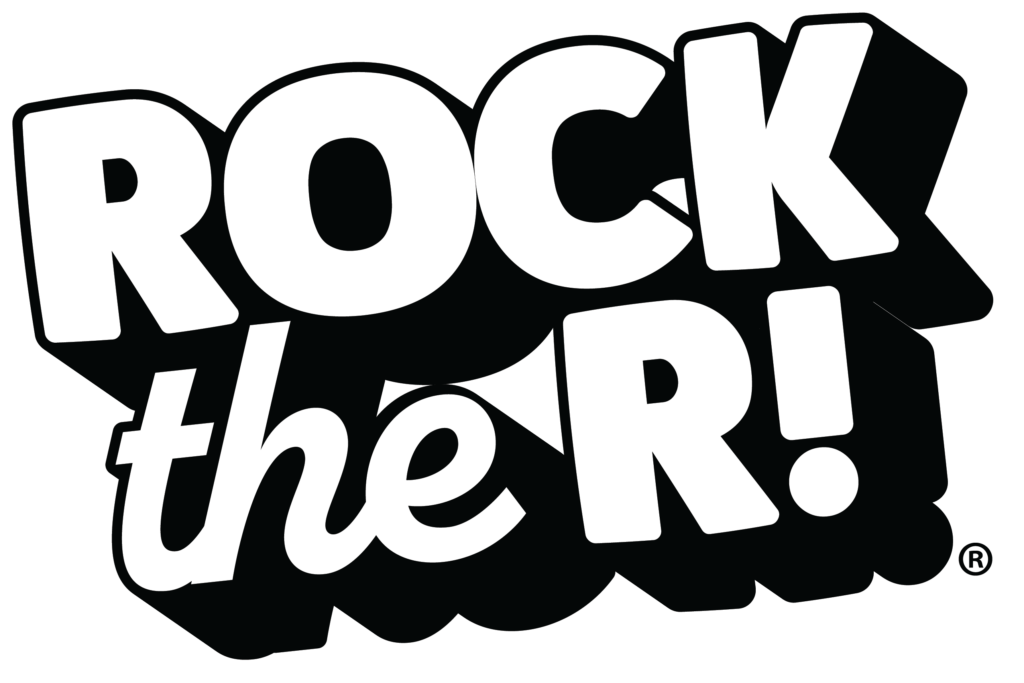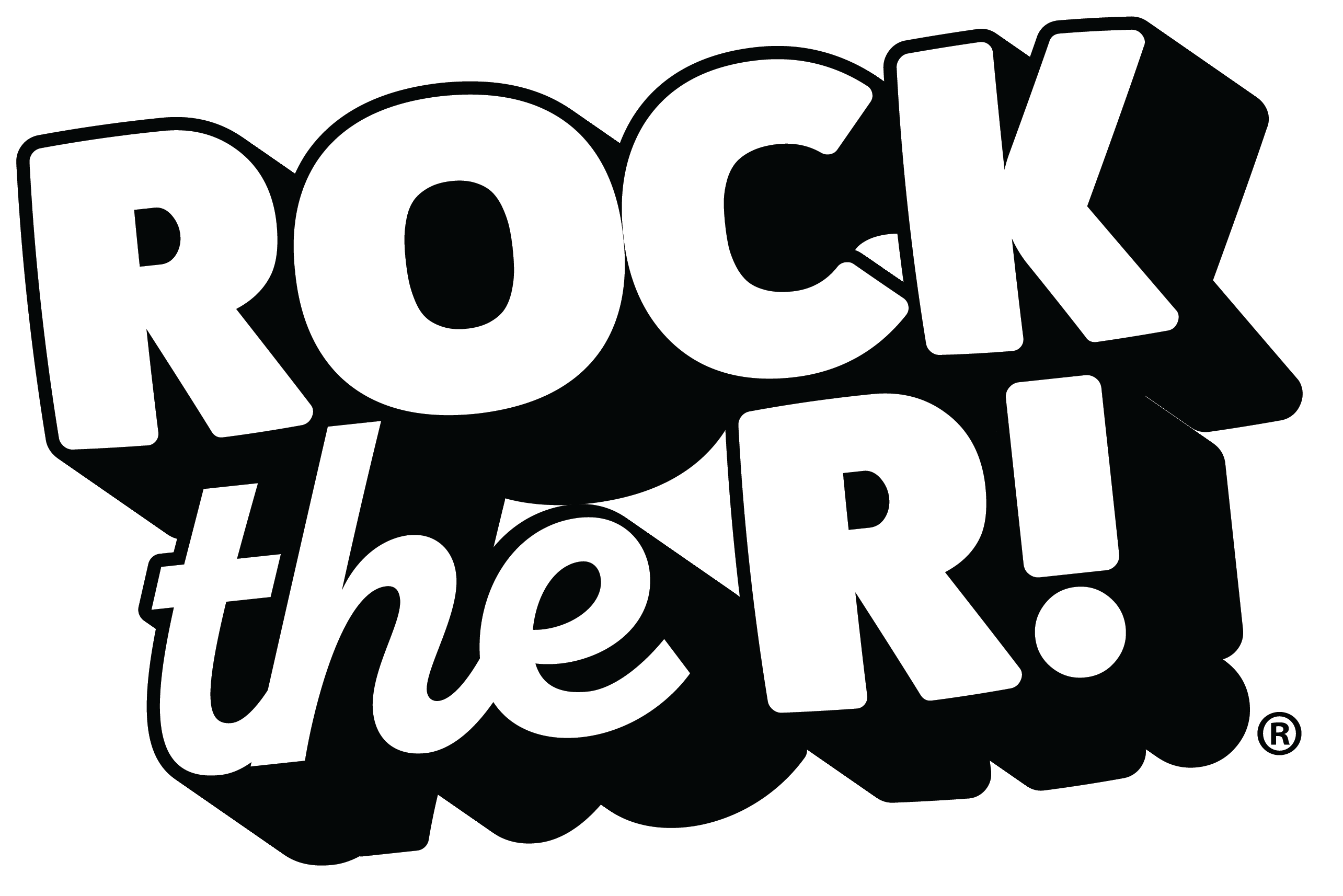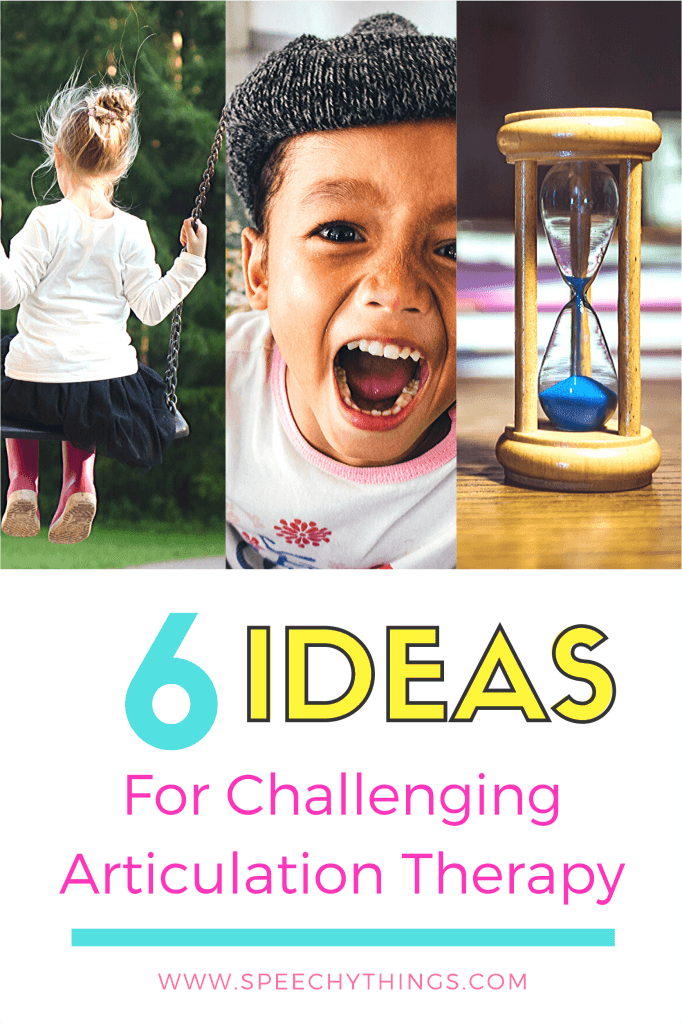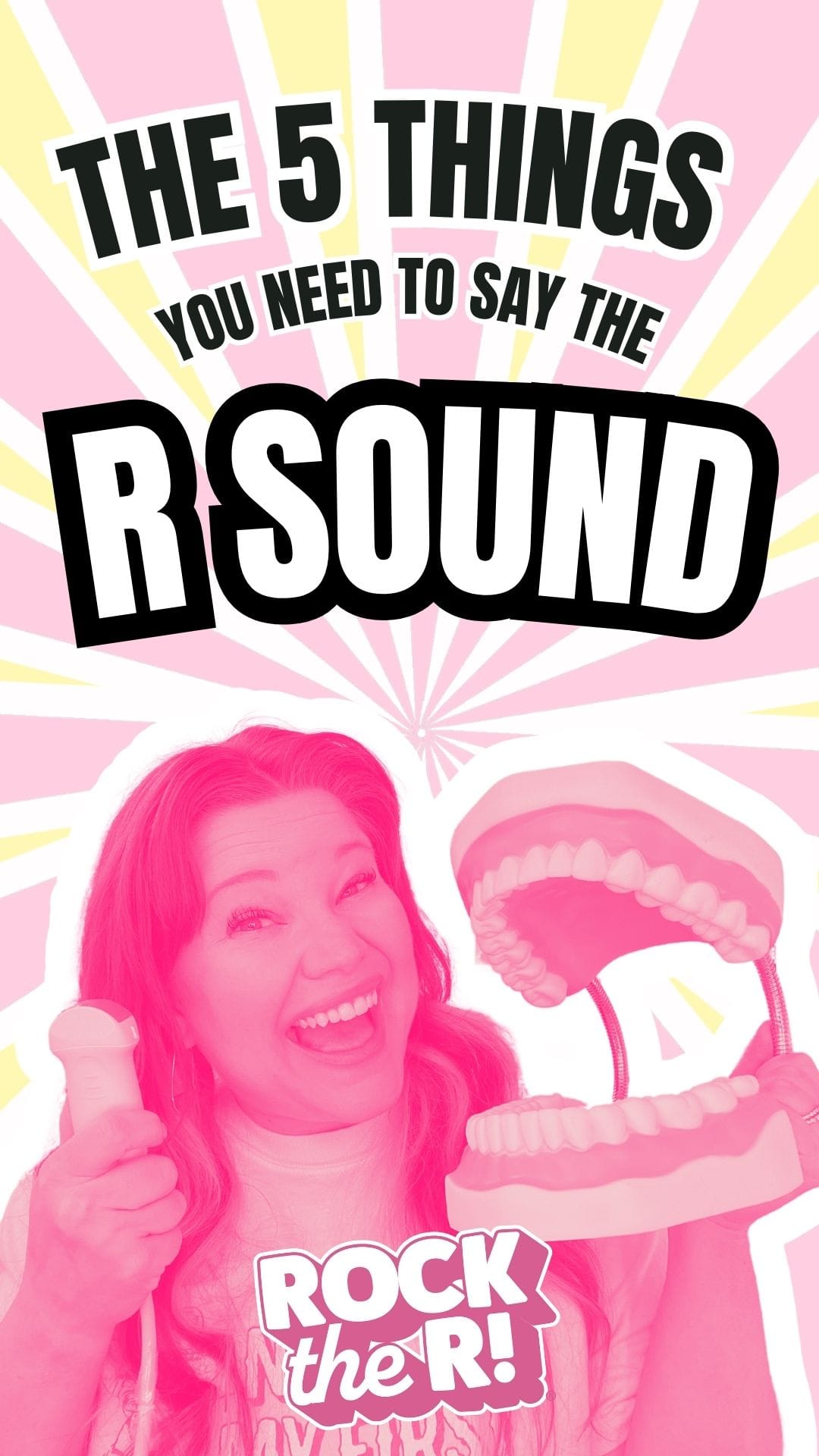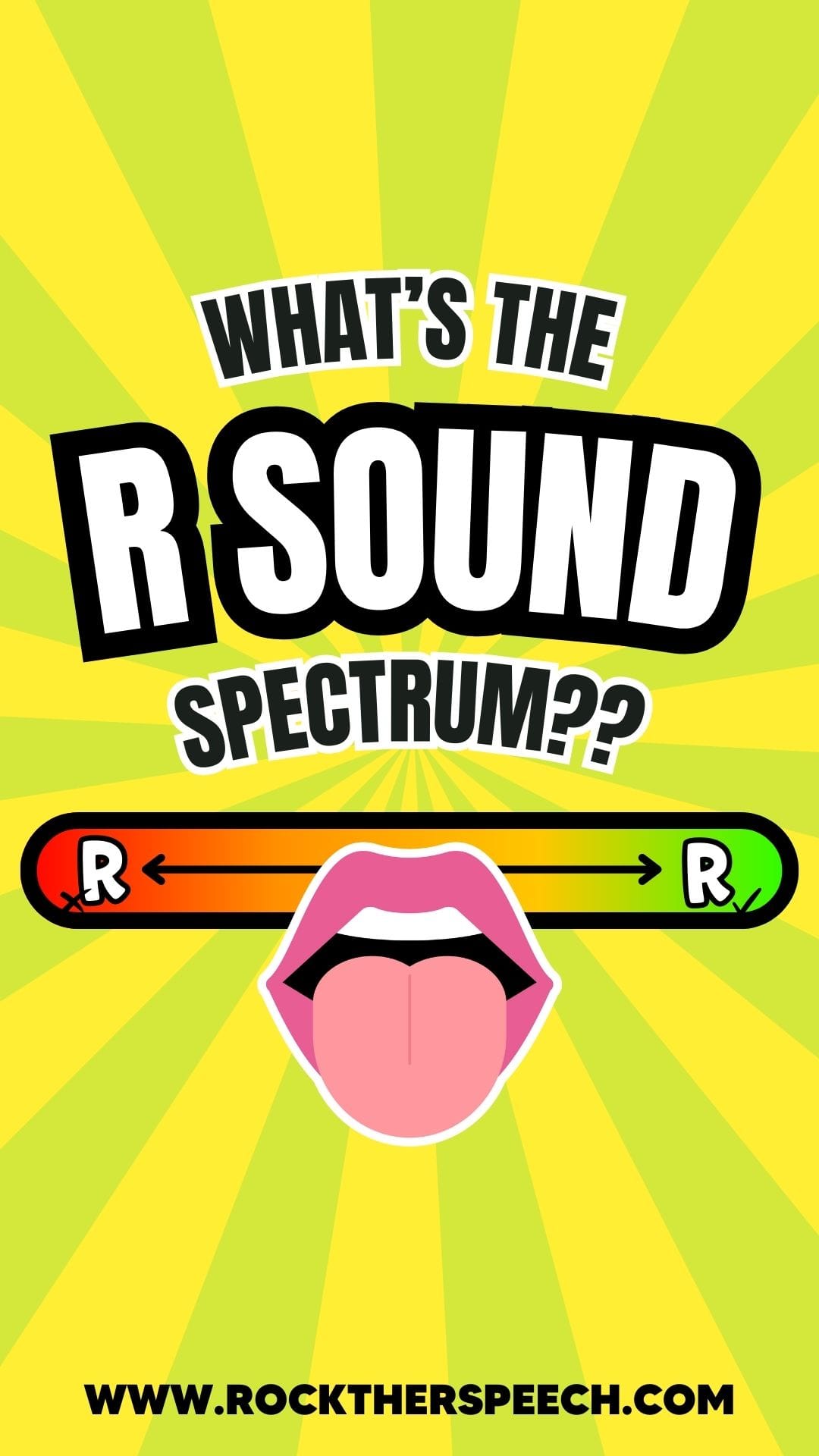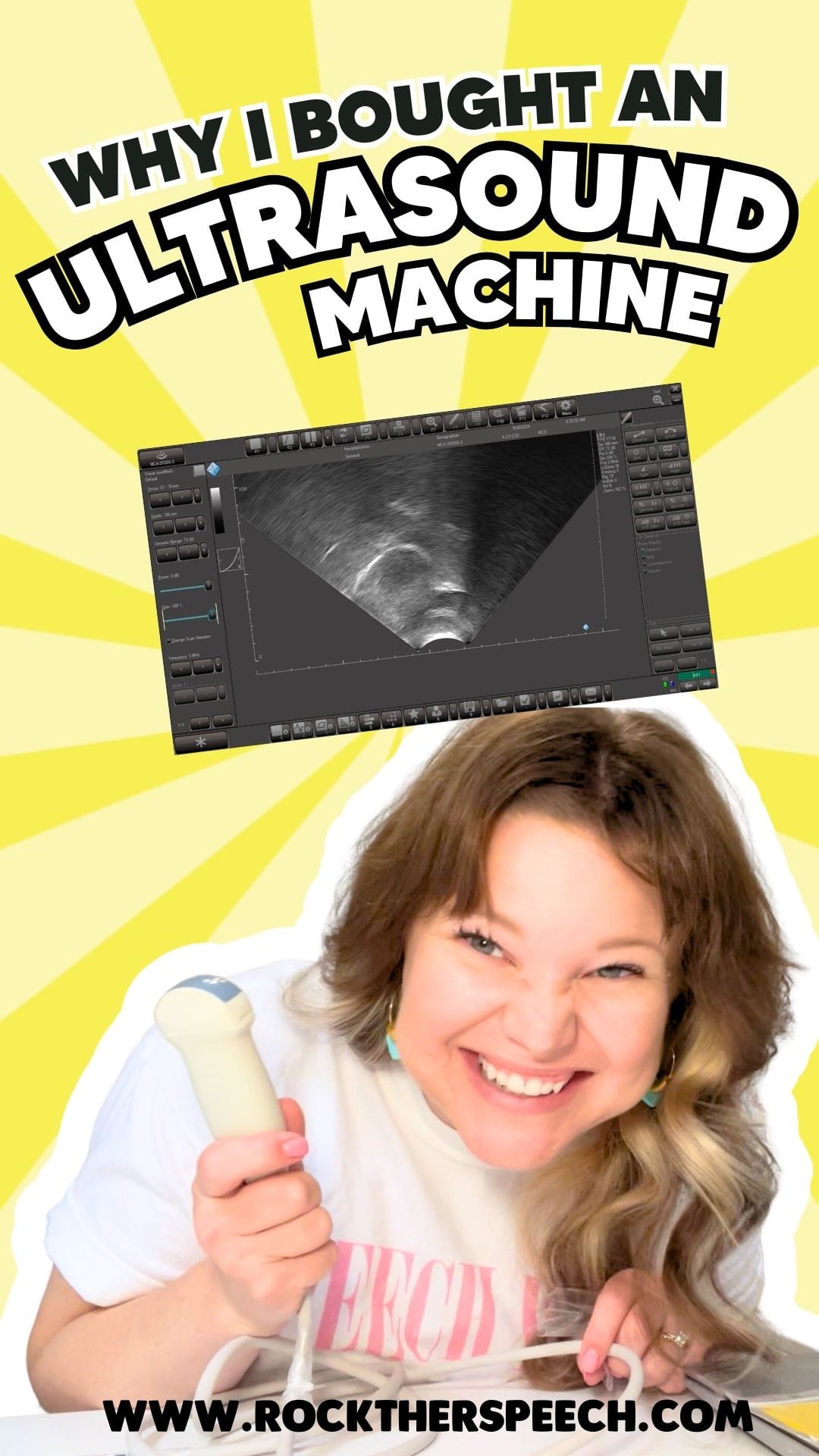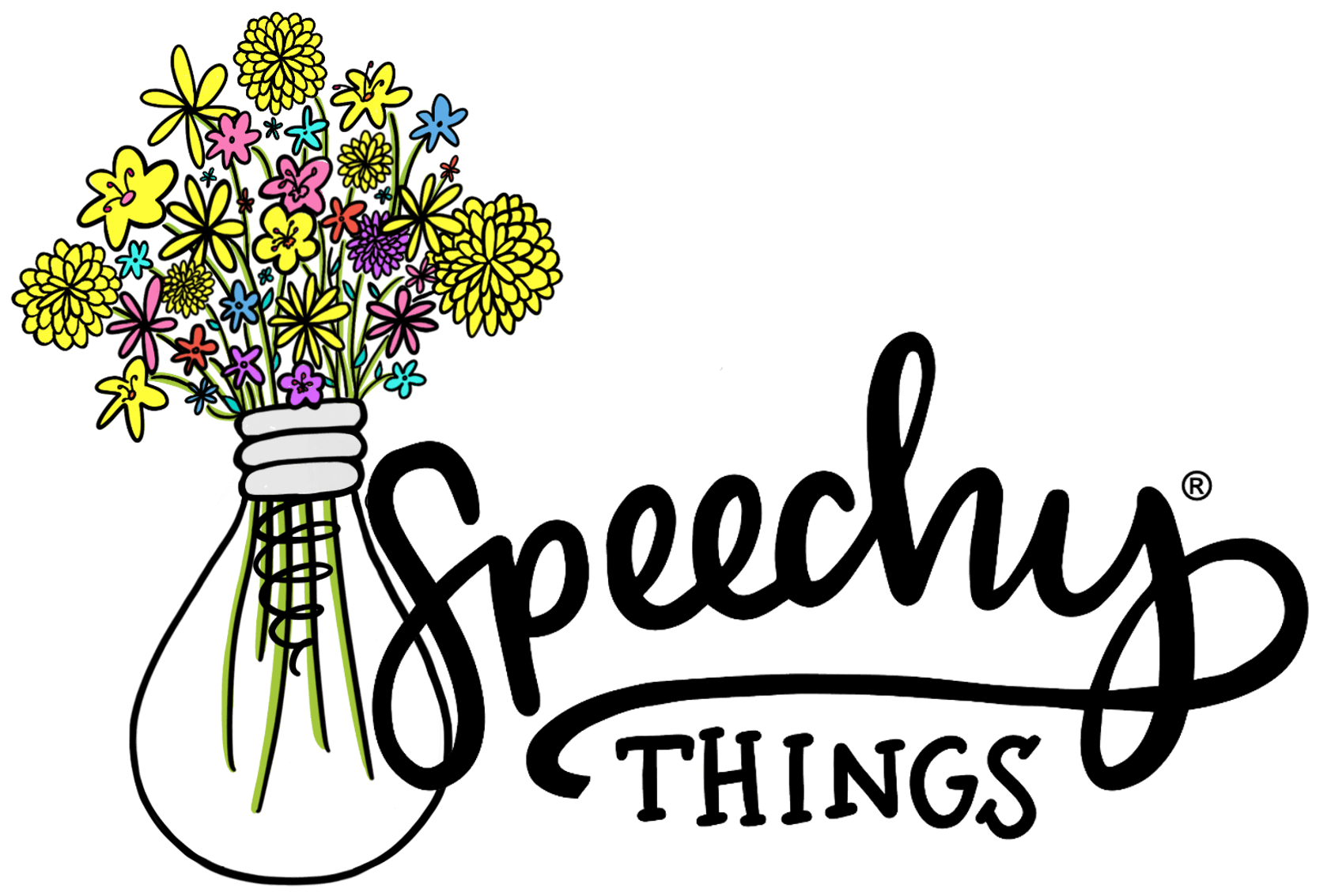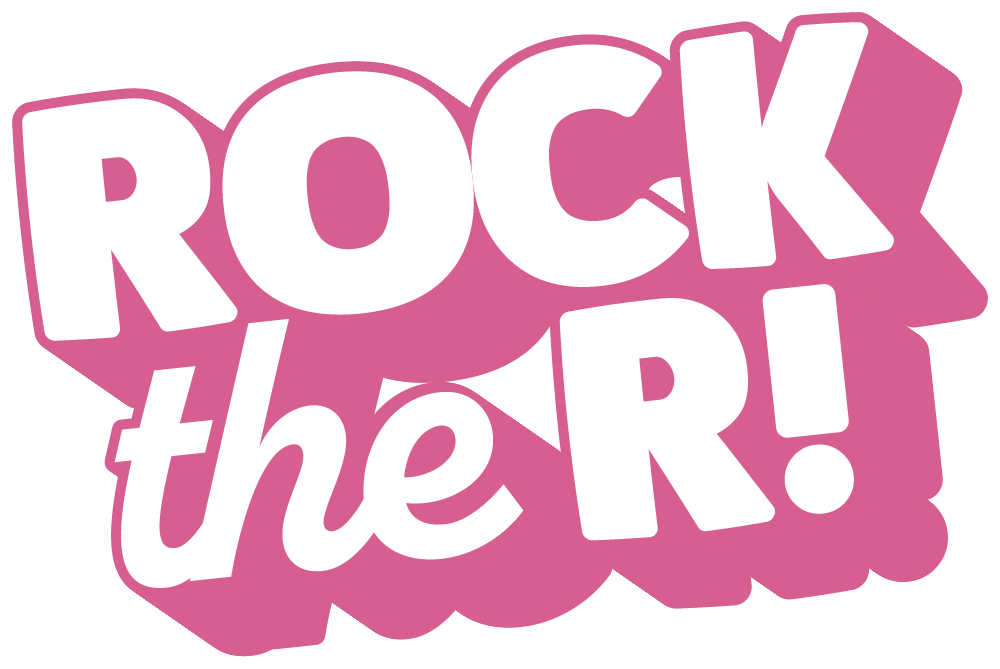One of the things I love most about articulation therapy is how straight-forward it is. There is a reasonably clear path from start to finish, and goodness knows we can’t say the same thing for language therapy!
(Click HERE for a freebie articulation hierarchy ladder visual, by the way.)
That being said, it seems that sometimes students can get stuck on a particular step of the speech hierarchy. If there’s one thing I cannot STAND in therapy, it’s feeling unproductive. If I feel like we’re doing the same thing again and again (and again) with no improvement, then you know my student feels that too. They’re probably getting discouraged and that means we’ve got to pivot.
(This goes double for my kids working on the R sound.)
So I got to thinking… is there a way for us to scaffold even more?
There must be mini-steps beyond just the regular ol’ isolation > word > phrase > sentence > blah blah blah. Something we can do beyond varying levels of cueing.
I’ve put together a list of ideas you can incorporate to add an extra challenge to the upper-levels of the speech hierarchy. These strategies will help you add some dimension to your therapy, so these kids can finally achieve generalization and GRADUATE.
Let’s do this!
.

1. Time them.
Whether you’re at sentence, reading, or structured conversation level, throwing a timer into the mix adds an extra element of pressure and challenge to articulation therapy. Maybe they have to get as many correct target phonemes as they can within 5 minutes. Maybe they have to try to answer 3 questions in one minute using good speech. Whatever the challenge is, making it a game is always more engaging.
.
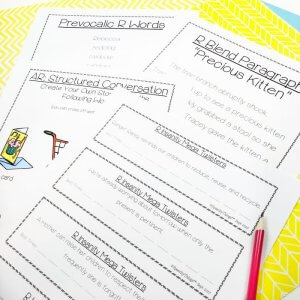
2. Use tongue twisters.
Using tongue twisters are a fun and silly way to REALLY challenge students. They don’t have any time to slack or turn their brains off because the next target word is just around the corner. You might be surprised at just how engaged your students will be!
.

3. Make it exciting or silly.
This gets easier as you get more familiar with the student. Having a conversation about a favorite subject or doing a really silly activity will increase how excited the student is and will get them talking faster. And we all know what happens when our speech students talk faster… things fall apart!
Bonus: If it’s their favorite topic, they likely talk about it all the time. It doesn’t get more functional than targeting words they are likely to use every day.
One of my favorite silly activities is these silly scenes I’ve created. You can click the image below to check out the free version!
.

4. Make it phoneme-heavy.
There are a few ways I like to ensure a TON of practice during my speech therapy sessions. For little ones, I might incorporate mini objects into our play, so they have a lot of opportunities to use words with their phoneme. For older kids, I may give them 2 or more stimulus cards they have to put in a sentence or story. For my readers, I use the phoneme-heavy paragraphs included in these resources, so their brain is continually having to work to correct their sound.
.

5. Incorporate movement.
Having your student practice while doing fine or gross motor tasks will challenge their brain to split focus. I always recommend giving gross motor breaks during therapy anyway, but having them practice speech during an activity is a great way to split their focus and make therapy more challenging. You can try having them practice words while going on a walk, while coloring a picture, or any other motor task you can concoct.
.

6. Increase the stakes.
This sort of goes hand-in-hand with number one on my list, but I like to make deals with my students. For example, I’m currently working with a student who gets to go to the gym if they get 80% of their target phoneme correct in structured conversation. When you give kids a reward to work toward, it’s incredible how much more accurate they get! A little pressure goes a long way.
(If I am going to use extrinsic motivation like this, I am sure to always give credit for self-correcting a sound. Sometimes I will even give extra credit for self-corrections, depending on the student.)
.
Are you ready to challenge your students in a whole new way?
Heck yes you are.
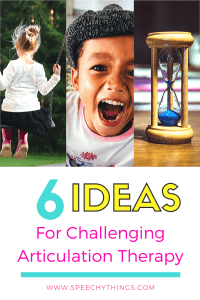
I hope you find these suggestions helpful! If you want more therapy ideas, you can always connect with me on Instagram! Better yet, join my VIPs (Very Important Pathologists) to get access to my freebie library. The password is always changing so be sure to open those emails!
Happy Speeching!



